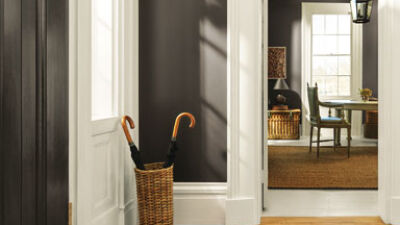METRO DETROIT — With summer and warmer temperatures just around the corner, many people are turning to their air conditioners to stay comfortable. But in conjunction with the increased use of energy, it isn’t uncommon for residents to see a spike in their utility bills.
So how do you keep your home or apartment cool without breaking the bank this summer?
According to Consumers Energy’s website, an air conditioner is one of the biggest users of electricity. To avoid trading a low utility bill for comfort, the utility recommends running the air conditioner in the morning so it won’t have to work as hard when utility prices are higher in the afternoon.
“Your AC won’t have to work as hard and you can get your home to a comfortable temperature before electricity prices rise in the afternoon,” Consumers Energy states. “Then, from 2 to 7 p.m., simply turn your thermostat up a few degrees. Your house should stay cool, and you’ll save some money.”
Additionally, Consumers Energy recommends using a programmable thermostat to take some of the effort out of controlling your air conditioning, as well as installing an air conditioner in the shade and ensuring that it is clear of any leaves or debris. If using a window-mounted unit, close any open registers to keep cool air from escaping.
“At the end of the day, our priority is ensuring our customers have the energy they need to power their homes and businesses, and we’re more than prepared to provide that this year, even on summer’s hottest days,” Consumers Energy spokesperson Tracy Wimmer said in an email. “But for those customers looking to reduce their energy footprint or simply save money on their bills, there are a number of very easy-to-implement tips that can be utilized in the summer months — from closing doors and registers in unused areas to operating appliances like the stove or dryer in the morning or evening when it is cooler outside — helping to keep costs low without sacrificing comfort.”
DTE Energy also recommends using Energy Star-certified appliances, which are tested and verified for technologies that improve efficiency and performance while being better for the environment.
According to DTE’s website, insufficient insulation can lead to uncomfortable temperatures and increased utility bills.
“Air can leak out of your house around openings that are not in obvious areas,” the website states. “Common household air leaks can be found around the plumbing vents, attic hatch, recessed lights and basement rim joints. To maximize home efficiency, seal all the gaps where air can leak out.”
DTE also suggests ensuring that rugs, drapes or furniture are not blocking airflow from registers and changing the direction of ceiling fans to cool more efficiently.
Cooling without an air conditioner
Lasko, which manufactures electric fans, has some advice for getting the most out of them. The manufacturer points out on its website, lasko.com, that cooler air is heavier than hotter air, so placing a fan lower to the ground may better disperse the cooler air in a room.
Lasko also recommends pointing the fan at a wall that is across from where most of the activity in the room takes place. It says this placement will bounce the air off the wall and mix it with the rest of the air in the space, cooling it.
Lasko states that twin window fans working together can take in cooler air while at the same time exhausting hot air to the outdoors. Opting for this two-way circulation can help cool a room and keep it from feeling stuffy.
“Box fans are versatile in their use due to their ability to operate in windows,” Brian Schaadt, Lasko’s business unit director, said in an email. “When weather and safety permit, using a box fan facing outward in a window and opening another window in the room (or nearby room) can effectively increase fresh air indoors and exhaust polluted indoor air.”
Schaadt also suggested opening windows when it’s cooler outside at night and placing box fans to circulate the fresh air and create a cross flow ventilation system.
Looking for more ways to save?
Many local utility companies — including DTE Energy and Consumers Energy — offer rebate programs and other incentives for switching to energy-efficient appliances.
Consumers Energy also offers inspections to help homeowners find ways to make their homes more energy-efficient, while DTE can help connect homeowners with contractors.
For more information on either program, visit consumersenergy.com or dteenergy.com.
 Publication select ▼
Publication select ▼






















